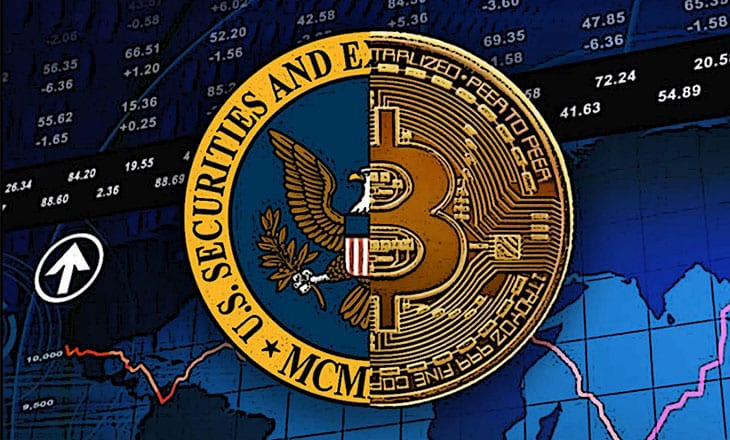Bitcoin values have been plummeting, some 77% down from its high a year ago, but enthusiasts have always held out hope that institutional investors would save the day. Many of these hopes have been held captive by the SEC, which has already turned down in 2018 over a dozen applications to form a Bitcoin Exchange-Traded Fund (ETF). Although Jay Clayton, the SEC’s Chairman, had appeared more accommodating in recent public speaking engagements, the remarks he made at CoinDesk’s recent Consensus Invest conference in Manhattan generated alarm. Issues related to surveillance and investor protection must be addressed before he will feel “comfortable”.
The reasons cited for turning down previous ETF proposals have been “risks of fraud and manipulation and the challenge of investor protection.” Crypto exchanges have sprung up across the globe in response to consumer demand, but each entity is independently owned and presently unregulated. Common operating standards and regulatory oversight are sorely needed to bring credibility to the fledgling industry of cryptocurrencies. In a recent survey, 88% of exchanges would welcome regulation, but the process will take time due to the decentralized nature of the crypto ecosphere.
Stock exchanges in the United States typically have surveillance systems that monitor transactional activity for potential instances of abuse or manipulation. Per Chairman Clayton:

Jay Clayton, SEC
What investors expect is that trading in the commodity that underlies that ETF makes sense and is free from the risk of manipulation. It’s an issue that needs to be addressed before I would be comfortable. Those kinds of safeguards do not exist currently in all of the exchange venues where digital currencies trade.
Clayton is also concerned about custody protections related to investor deposits. He and his SEC staff continue to observe a never-ending stream of articles detailing crypto exchange frauds, data compromises, and the disappearances of millions of dollars of funds belonging to the investing public:
We’ve seen some thefts around digital assets that make you scratch your head. We care that the assets underlying that ETF have good custody and that they’re not going to disappear.
The custody topic has not been ignored. Fidelity announced in October that it was developing a crypto custodial service for institutional investors in anticipation of its need down the road. U.S. exchanges like Coinbase, Gemini, BitGo, Ledger and ItBit are also proceeding with similar solutions. Gemini has also announced a cooperative effort with NASDAQ to gain access to its surveillance technology in order to apply the same “rules-based” environment for its marketplace. Price volatility will always be an issue with cryptocurrencies, the reason it has been labeled the most volatile asset class in history.
Analysts have often declared that crypto values will soar again, once institutional investors join the cryptocurrency wave in large numbers. The SEC’s Jay Clayton, however, is not “comfortable”, and until things materially change, we doubt if he will give the green light for a game-changing Bitcoin ETF any time soon.
